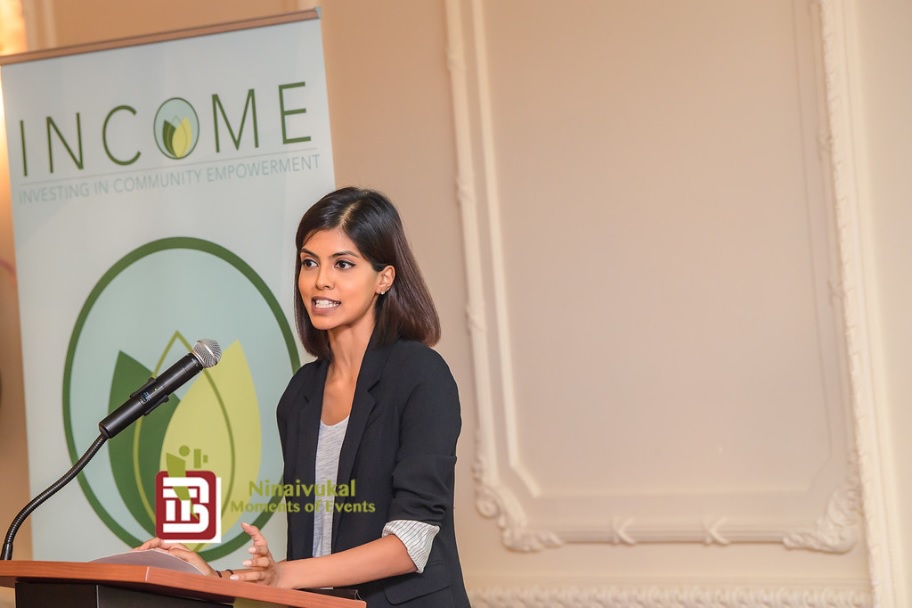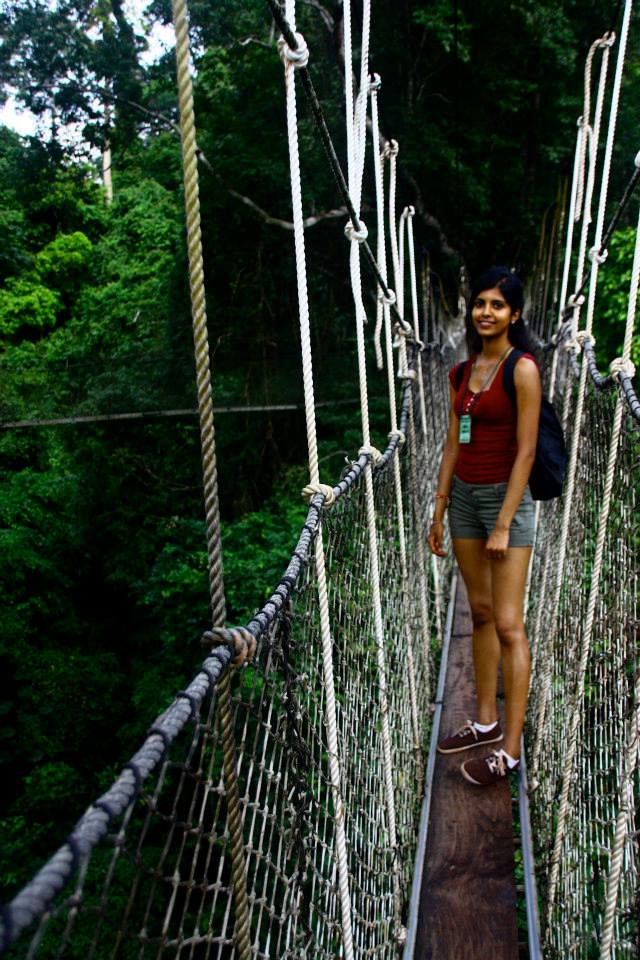
Akalya Atputharajah speaking at a meeting held by the NGO Investing in Community Empowerment (InComE). Photo © courtesy of Ninaivukal Moments – Nedia Personnel.
Akalya Atputharajah’s parents came to Canada as refugees from Sri Lanka just before she was born. Other family members also followed the same path. She grew up hearing stories about her family’s journey after leaving Sri Lanka.
She was born and raised in Toronto, a city where many people share similar stories about life as a refugee.
Atputharajah did her undergrad in contemporary studies at Wilfrid Laurier university and she tells that in the interdisciplinary program she got to take several courses, including some in human rights and international development. She has a master’s degree in immigration and settlement from Ryerson University and she is currently a PhD candidate in the international development and globalization program at the University of Ottawa.

Akalya on the canopy walkway at Kakum National Park in Ghana. Photo © courtesy of Shailee Benson.
In 2013, Atputharajahhad the chance to work in Ghana, West Africa, at a women’s and children’s rights advocacy organization. She returned to Ghana in 2016 to work at a micro-financing organization that helped female-headed households in the northern region. This summer she will be going to Kenya, where she will be spending four weeks working on the localization of humanitarian action.
“The camps in Kenya are really unique because they’re, I believe, the biggest in the world,” she says. “I’m really excited to learn about their experiences because I think the length of time that the camp has been around and the experiences of such a large group that is residing there is really vital information that we can use to really understand camps around the world.”
Atputharajah says that what she is most excited about being part of LERRN is having the chance to hear about the experiences of people, while trying to find solutions with partners from the global south.
“I absolutely love what LERRN stands for. That’s a pattern that we’ve seen for quite some time when the global north sort of speaks on behalf of the global south,” says Atputharajah. “I definitely am so excited to be part of a movement that doesn’t just aim for the global folks to speak, but more importantly have the global south to be heard.”
She says that LERRN’s commitment of hearing the partner countries has been transparent from the beginning of the recruiting process.
“I know that the Kenya working group made the final decision about which researchers were going to come to Kenya,” she says. “That was the first moment when I realized that LERRN really was committed to the idea of partnership and not just with words but with action.”